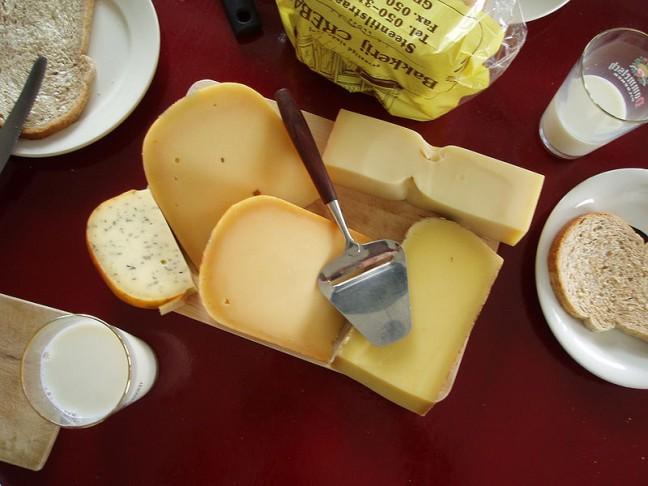After winning the 2016 American Cheese Society Contest in partnership with Wisconsin’s Center for Dairy Research, Roelli Cheese Haus strives to keep up with the overwhelming demand of their award-winning cheese.
The cheese, named Little Mountain, won against 1,842 different cheeses in the competition.
CDR is a research center and dairy plant housed at UW. According to their website, 30 researchers and scientists conduct research that explores the functional and physical properties of cheese and other dairy products. CDR researchers assist the state’s dairy industry in developing products that maintain Wisconsin’s reputation as the dairy state.
To craft the award-winning block, fourth-generation cheesemaker from Shullsburg, Chris Roelli, called CDR cheese industry and applications coordinator John Jaeggi about his vision for a cheese similar to one he tasted in Switzerland — but with his own unique spin on it. They discussed parameters and type of cheese to create a blueprint and plan to develop it.
“They helped me basically from the start, taking an idea and transforming it into a finished product,” Roelli said.
Together, they worked through the microbiology of flavor and design by using timing and different equipment to achieve Little Mountain’s signature taste, according to a University of Wisconsin press release.
Through trial and error, the two were able to adapt the vision to the machinery Roelli had access to, and the award-winning cheese was born.
According to the Roelli Cheese Haus website, Little Mountain is an Appenzeller-style Alpine cheese made with raw cow’s milk with a traditional washed rind — meaning it’s smooth and nutty.
It is then aged for six to seven months in a cellar above ground with cooling pipes. These pipes do not force air in an effort to stop microbes from spoiling the cheese. After it’s finished, Little Mountain is sold for around $22 per pound.
Little Mountain became so successful — it almost immediately sells out after production.
“The cheese still commands a waiting list,” Roelli said. “We aren’t able to make a lot of it, but what we do make is generally sold on the day that we make it.”
According to the press release, Roelli was unable to compete in cheese competitions until 2005 due to the closing of the family factory. He opened a cheese plant on an 18-wheeler he called “Cheese on Wheels.” One year later, he began crafting artisanal cheeses.
Roelli told UW he has a long history of cheesemaking in his family. His great-grandfather, Adolph Roelli was a cheesemaker’s apprentice in the Swiss Alps before he immigrated to Green County. He became a farmer and sold milk until he took a job as a cheesemaker. From then on, cheese became the family business.
Roelli said he wanted to craft a cheese that went back to his family roots, something that reminded him of the Swiss mountains where his great-grandfather learned the cheesemaking trade.
He began experimenting with Parmesan before choosing an Appenzeller. From there, he contacted the CDR to fine tune the cheese.
Through CDR, UW spokesperson Meredith McGlone said the university is committed to creating and maintaining such partnerships.
“UW-Madison is proud to partner with Wisconsin cheesemakers to produce delicious and innovative new cheese like Little Mountain,” McGlone said.


